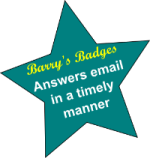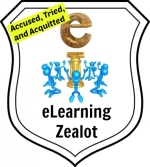This was published as a Local View column in the Duluth News Tribune on September 3, 2020.

Facebook has proven itself to be a danger to democracy. The republic is under attack, and Zuckerberg is the attacker.
If Facebook is your main source for news, then you’re not getting news; you’re getting indoctrinated by propaganda. According to PBS News, fake accounts created in Russia during the 2016 election reached more than 126 million Americans, almost equaling the 136 million who voted in the election. A fake account is one that is not backed by a real person — or not by the person purported to be behind the account.
According to the Wall Street Journal, Facebook knew about the Russian disinformation campaign during the 2016 election but didn’t take action because of organizational dysfunction. Regardless of why Facebook didn’t take action, it knew and did nothing.
As we near another presidential election, we again find that the information fed to the public across social-media platforms is far too often filled with lies and fake videos. In 2020, Facebook still knows and yet does almost nothing to stop it.
Even if Facebook became more effective at cracking down on fake accounts and misinformation detection, I wouldn’t recommend anyone trust the company to take action. The Proud Boys hate group was permanently banned from the platform in October 2018. However, in July 2020, Facebook removed 54 accounts, 50 pages, and four Instagram accounts (also owned by Facebook) where the hate group was back up to its usual violence-inducing tactics. Sure, Proud Boys got caught, but how much damage did it do before getting caught?
Facebook has rules against accounts and posts by violent militias, and yet the Kenosha shooter was egged on by a page that encouraged armed Americans to take to the streets of the far southeastern Wisconsin city. Facebook CEO Mark Zuckerberg said Facebook made an “operational mistake” by failing to remove the page until after the event occurred. So people died because of an “operational mistake?”
Facebook is Fakebook. The amount of misinformation and fake news is staggering. Your timeline is littered with fake outrage over every little stupid thing. Not to mention the fake enthusiasm about the minutiae of life (“Oh boy, baked potatoes tonight!”).
I left Facebook almost two years ago. I no longer was willing to be the product it was selling to others. Believe it or not, I find I can still stay in touch with friends and family. Facebook made that easy, but the price tag was too high.
If your business uses Facebook as your only “website,” then I won’t be your customer. If you’re a local politician who mainly talks to the people through Facebook, then I won’t hear your message. If you’re trying to sell something on Facebook, then I won’t be your buyer.
Zuckerberg doesn’t care a whit whether his platform is used by foreign agents in an attempt to manipulate the U.S. presidential election. If you are a Facebook user, then you support Zuckerberg and his goals. You are not an innocent bystander.
More than 1,100 companies and organizations joined the advertiser boycott against Facebook in July to pressure the platform to take more action on hate speech and deceptive posts from politicians. I suggest that you join in by deleting your Facebook account and leaving the hate-filled site behind.
If you don’t want to believe some rando who wrote a “Local View” commentary (that’s me), that’s fine. Do your own research. Just don’t do your research at InfoWars and Breitbart — and definitely not at Facebook.
Barry Dahl of Superior is an educator who taught at the University of Minnesota Duluth for six years and worked at Lake Superior College for 16 years, including 10 years as a dean and vice president. He works now for an online learning software company. He was an early user of Facebook when the platform first opened to the general public. To learn more about the evidence against Facebook, he recommends “The Great Hack,” an Emmy-nominated documentary on Netflix.
Filed under: Uncategorized | Leave a comment »

















